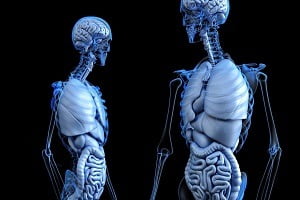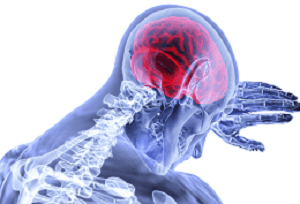Physical vs Psychological Addiction: Understanding the Difference
Addiction is a continuous use of drugs/alcohol despite the obvious negative consequences. To understand addiction in-depth, it’s important to look at the main types of addiction (psychological and physical addiction). It’s also important to look at dependence and tolerance.
Physical dependence happens when the body physiologically adapts to external substances. When the body is denied such a substance, it triggers withdrawal symptoms. Physical dependence happens because of the changes that drugs make in the brain. It’s worth noting that a person can be physically dependent on drugs without being addicted.
Addiction is a behavioural syndrome that causes compulsive and repeated search (psychological dependence) or usage of drugs despite the negative psychological, physical, and social consequences.
The relationship between physical and psychological dependence
Behaviour is linked to mental and psychological aspects. The mind and body can’t be separated when examining all kinds of behaviour including behaviour in regards to substance abuse and process addiction like compulsive gambling.
Portraying behaviour as purely psychological or purely physical, is wrong. It’s important to avoid extreme viewpoints to understand how addictive behaviours are developed. Nothing is simply ‘just physical’ or ‘just psychological.’
This is enveloped in the idea that addiction is a choice, but in truth, substance addiction is propelled by a variety of physiological processes. These processes affect behaviour and decision making, concluding that chemical reactions in the brain (psychological addiction) affect the physical functions in the body.
Signs of physical dependence:
Physical dependence shows in physical ways such as:
- Anger
- Insomnia
- Depression
- Trembling
- Seizures
- Gastro-abdominal issues
Signs of psychological dependence:
Psychological dependence shows in behaviour such as:
- Obsession
- Gambling
- Taking large doses
- Abusing drugs when you have health problems
- Inability to stop drug usage

Physical addiction explained
A person is said to have physical addiction if they repeatedly take a drug until they are overly dependent to the extent that their body can’t function without the drug. Drugs like heroin, alcohol, and prescription drugs can cause physical addiction.
Such substances trigger addiction by triggering unique chemical reactions in the body that counter their effects. With time, the body develops tolerance (i.e., stops reacting to these substances as it did when they were initially introduced). Tolerance makes a person take higher quantities of a substance to enjoy the initial feeling.
The speed and degree of physical addiction is dictated by factors like the substance being abused, the frequency at which the substance is abused, how the substance is taken, and other factors like a person’s medical history.
Symptoms of physical addiction
Physical addiction has warning signs such as:
- Blackouts
- Mood swings
- Memory loss
- Irritability
- Depression
- Vomiting
- Seizures
- Disorientation
- Body aches
- Constricted pupils
- Blood pressure changes
- Tremors
- Shaking
- Restless legs

Psychological addiction explained
As the name suggests, psychological addiction arises or relates to the mind and emotions. Psychological addiction is about mental dependence on a substance or the behaviours displayed because of a substance.
Individuals who are psychologically addicted to substances have mental or emotional attachments to those substances. They feel compelled to find and use a certain substance, and when they can’t get them, they may get incredibly volatile emotions. Attempts to quit are met with withdrawal symptoms as the body attempts to replace the lack of that substance in the system.
Symptoms of psychological addiction
Psychological addiction can cause the following:
- Intense substance cravings
- Denial
- Loss of appetite
- Restlessness
- Mental obsession with substances
- Anxiety
- Insomnia
- Mood swings
How does psychological addiction occur?
When you take drugs or engage in activities that bring you pleasure, a special area in the forebrain known as the nucleus accumbens become activated. This area controls pleasure, including the desire to recreate pleasure, which leads to psychological addiction. [1]
You can become psychologically addicted to anything, including substances which are considered non-addictive. Psychological addiction is linked to mental disorders. Most people who have a genetic predisposition or addictive personalities are more susceptible to form addictions. [2]
Stimulants like cocaine and Ritalin, most hallucinogenic drugs (i.e. LSD) and cannabis products, are associated with both physical and psychological addiction. The same applies to most inhalant products and psychotropic medications.
Differences between psychological and physical addiction
Physical dependence is characterised by withdrawal symptoms that make a person feel physically ill. Psychological dependence is characterised by strong urges to use a drug/substance despite the obvious negative effects. You can be physically dependent on a drug without being dependent psychologically. [3]
For instance, an individual who has used benzodiazepines for years to deal with chronic insomnia can become physically addicted without experiencing uncontrollable urges. It’s also possible for a person to be psychologically addicted to a substance only. Drugs like marijuana don’t cause withdrawal in all users. However, users can have a hard time quitting.
Six key differences: Physical vs. psychological dependence
- Individuals who are physically dependent on a drug need certain amounts of that drug to avoid withdrawal symptoms or sickness
- Individuals who are psychologically dependent on a drug will neglect critical responsibilities to obtain/use drugs
- Physical dependence can be a problem for individuals who use prescription medication correctly over a long time
- Psychological dependence causes people to use drugs in physically hazardous situations i.e. when someone is capable of getting sick because of the drug
- Physical dependence changes the brain physically, causing addiction, and related mental health disorders such as depression
- Psychological dependence causes recurring interpersonal and social problems [4]
Similarities between physical and psychological addiction
- The effects on the brain are similar: both types affect the reward system in the brain (dopamine). Both physical and psychological addiction causes resistance to dopamine requiring more substance to enjoy the same feeling
- Both can be treated: physical addiction can be treated through supervised detoxification. Psychological addiction can be treated through psychotherapy, holistic therapy, cognitive behavioural therapy, and nutrition & relapse prevention
- Both are problematic: while both physical and psychological addiction can be treated, they are problematic. Physical addiction tricks the body to think it must use an addictive substance. Psychological addiction “hijacks” the brain and rewires it to need the drug psychologically and physically
Physical & psychological withdrawal and recovery
Before going for detox or attempting to recover from addiction, you need to understand the nature of addiction. Physical addiction should be treated in a professional detox centre to ensure the detox is conducted safely by medical professionals.
Detox is a professional rehab where recovering patients are monitored constantly and assisted when they suffer from withdrawal symptoms. Individuals with psychological addiction should see addiction therapists as they are the best-placed professionals for treating psychological addiction.
Individuals with both addictions (physical and psychological) should visit a professional rehab centre that offers medically supervised detoxification and therapy for psychological addiction.
Holistic drug rehab programs offer the best variety of treatment modalities capable of addressing many aspects of life from the emotional to the mental state of a person’s health. Regardless of the type of addiction, holistic drug rehab offers the best chance of recovery. [5]
How is physical addiction treated?
Physical drug addiction is treated through medical detox. Patients are allowed to stop using drugs in a safe environment. Patients are monitored 24/7 for complications. Medical detoxification is done using medication that targets specific symptoms. The process can last for 2 to 10 days or more depending on the drug in questions, the seriousness of drug dependence, the length of drug abuse/addiction, and the severity of related conditions.
Medical detoxification from prescription drugs like sleep aids and benzodiazepines can take weeks since patients need to gradually reduce the usage of such drugs to avoid complications. Medical detox treatment is tailored for specific individuals.
How is psychological addiction treated?
Psychological addiction is treated in many ways, using therapies aimed at identifying and changing harmful behavioural patterns and thoughts that contribute to drug abuse.
The most notable therapies include rational emotive behavioural therapy, cognitive behavioural therapy, dialectical behavioural therapy, 12-step support group therapy, and family therapy. The therapy sessions can be individual or on a group basis.
Individual therapy is customized for a patient depending on the uniqueness of their drug usage. Group therapy is meant to create a support system for patients. Treatment for psychological dependence ranges from a month to four months. However, programs can last for longer/shorter. Longer problems tend to be more effective.
Treatment differences between physical and psychological dependence
When treating physical and psychological drug dependence, the difference between the two matters. Professionals actually prepare treatment programs and therapies based on the type of addiction. The dependence, as well as related factors, are critical before a person has a decent chance of recovering from addiction.
Physical addiction requires medical drug detox. This detox helps a person get through the physical effects and mental symptoms of addiction safely and comfortably. After detox, you should be able to live a sober and clean life. Detox also prepares a person for rehab treatment to address the main causes of drug abuse.
Psychological dependence may also require medical detox in some cases. The main purpose for this is to ensure the body cleans itself from drug toxins safely. While the stay can be less intense when compared to physical addiction, detox treatment guarantees safety and comfort. In a nutshell, detox isn’t a must for psychological dependence.
Are you thinking about your substance use?
If you’re wondering about addiction and are looking for more information, call us today on 0800 088 66 86 for a free & confidential discussion about your rehabilitation & detox needs.
References
[1] https://www1.health.gov.au/internet/publications/publishing.nsf/Content/drugtreat-pubs-front6-fa-toc~drugtreat-pubs-front6-fa-secb~drugtreat-pubs-front6-fa-secb-8~drugtreat-pubs-front6-fa-secb-8-3
[2] https://www.ncbi.nlm.nih.gov/pmc/articles/PMC3354400/
[3] https://study.com/academy/lesson/physical-vs-psychological-substance-dependence.html
[4] https://www.psychiatry.org/patients-families/addiction/what-is-addiction
[5] https://www.psychologicalscience.org/publications/observer/obsonline/how-a-habit-becomes-an-addiction.html




